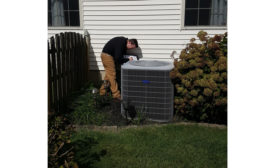Home » Keywords: » Home Energy Rating System
Items Tagged with 'Home Energy Rating System'
ARTICLES
Number of Homes HERS Rated Grows in First Three Quarters of 2021
Nearly 13,000 more homes HERS rated from January-September 2021
October 13, 2021
Number of HERS-Rated Homes Grows in First Half of 2020
Growth shown despite economic disruptions
August 28, 2020
22 Percent of New Homes Are HERS-rated
Provides homebuyers with a way to measure energy efficiency
August 30, 2017
Copyright ©2024. All Rights Reserved BNP Media.
Design, CMS, Hosting & Web Development :: ePublishing












